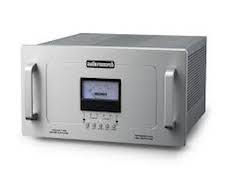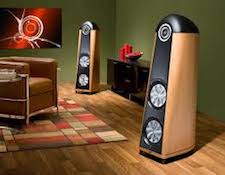It’s the time of year for saving money!
Regardless of how any audiophile may perceive or think of a manufacturer of high performance gear, they are first and foremost a business. Most are small, very often manned predominately by family members and trusted employees. More importantly, they are always a for profit business. Groceries and the light bill must be somehow funded.
 Many of our hobby’s oldest and most cherished companies have humble beginnings. Saul Marantz, for instance, began building amps in his basement because he was dissatisfied with what was available to him at the time. Edgar Villichur wanted to make a speaker system that was both small and had excellent bass. He never even wanted to form and manage a speaker company. Yet Acoustic Research (AR), at its zenith, was responsible for just over 60% of the total US speaker market. Today, AR is no longer in existence as a manufacturer of speakers and Marantz was sold off long ago.
Many of our hobby’s oldest and most cherished companies have humble beginnings. Saul Marantz, for instance, began building amps in his basement because he was dissatisfied with what was available to him at the time. Edgar Villichur wanted to make a speaker system that was both small and had excellent bass. He never even wanted to form and manage a speaker company. Yet Acoustic Research (AR), at its zenith, was responsible for just over 60% of the total US speaker market. Today, AR is no longer in existence as a manufacturer of speakers and Marantz was sold off long ago.
High performance companies, like any business, are in no way immune to the vagaries of commerce. Any company making anything can see downturns, lost revenue, bad investments, loss of market share and sure, the large Fortune 100 companies can fiscally weather the storm. Of course, one only has to look at Sears to see that even the most venerable companies can have massive problems.
When we look at many of the developments in high performance audio, most discussions amongst audiophiles typically center around topics such as new technologies, sonics and of course, cost. Yet I see little in the way of the quiet, almost stealth like consolidation of longstanding manufacturers taking place all around us.
 Look at some of the parent companies that either didn’t exist or were not involved in high performance audio a decade ago or less: McIntosh Group Harman, D&M Holdings, Gibson Guitars, and those are only a few. These parent companies now own such noted manufacturers as McIntosh, Audio Research, Sonus faber, Mark Levinson, Lexicon, Marantz and Esoteric. When many of us read about these developments we are, perhaps, possessed of a derided opinion for about two minutes and quite typically, pay the actions of these parent companies little further attention.
Look at some of the parent companies that either didn’t exist or were not involved in high performance audio a decade ago or less: McIntosh Group Harman, D&M Holdings, Gibson Guitars, and those are only a few. These parent companies now own such noted manufacturers as McIntosh, Audio Research, Sonus faber, Mark Levinson, Lexicon, Marantz and Esoteric. When many of us read about these developments we are, perhaps, possessed of a derided opinion for about two minutes and quite typically, pay the actions of these parent companies little further attention.
From a business standpoint, many of our highly respected companies face a decidedly uphill battle when it comes to a manufacturing operation. Building small, inexpensive equipment in large volumes take a lot of capital, space and personnel or risk being uncompetitive and lacking efficiency. Building hyper expensive equipment may take less physical and fiscal resources, but sales in units sold are probably remarkably small. Bottom line, it takes a certain level of financial prowess to effectively run a manufacturing operation, especially a small locally owned company building high performance audio gear.
 The audio industry as a whole also faces the uphill battle of finding and penetrating new markets. Unlike most sales companies, the average audiophile dealer doesn’t go knocking on stranger’s doors to sell their product – they wait until the customer comes to them. Fine if they do, but what if they don’t? Manufacturers, meanwhile, always with their backs to the wall with the constant challenge of making and selling a product, are placing constant pressure on distributors and dealers to SELL. In the absence of that, change of wholesale and retail outlets is practically inevitable. And for the first time ever, there is the small yet burgeoning trend of manufacturers selling directly to the consumer.
The audio industry as a whole also faces the uphill battle of finding and penetrating new markets. Unlike most sales companies, the average audiophile dealer doesn’t go knocking on stranger’s doors to sell their product – they wait until the customer comes to them. Fine if they do, but what if they don’t? Manufacturers, meanwhile, always with their backs to the wall with the constant challenge of making and selling a product, are placing constant pressure on distributors and dealers to SELL. In the absence of that, change of wholesale and retail outlets is practically inevitable. And for the first time ever, there is the small yet burgeoning trend of manufacturers selling directly to the consumer.
In the current climate, and on paper, audio consolidation makes sense. Having a family of companies under one corporate umbrella provides a safety net of sorts. It provides a better and more consistent revenue stream for necessary tasks such as new R&D, better manufacturing techniques and increased marketing efforts. With a strengthened bottom line, many manufacturers are perfectly willing to be invested in a parent company and the happy recipient of all that provides.
Is this newfound sense of security, however, stifling creativity and causing manufacturers to lose touch with the end use buyer? Have we become an industry where any affiliation with the principal owner / designer is exclusively at an audio show? Will the consumer see benefit in the “name” they know and trust being managed by a conglomerate in some far flung city or even the other side of the world?
 Another aspect of current business climate is the principal founder of the company retiring, becoming infirmed, or for any reason whatsoever not able or desirous of continued association with the company they founded. Just look at Thiel Audio to see a company that has undergone sweeping changes since the death of its founder. We can endlessly debate whether and how a torch should be passed but one thing is for certain, a company founded and run by one individual will have to deal with a change of management at some point. For some, it makes sense to simply sell the company to a conglomerate to hopefully effect sustained operations for the employees and customers.
Another aspect of current business climate is the principal founder of the company retiring, becoming infirmed, or for any reason whatsoever not able or desirous of continued association with the company they founded. Just look at Thiel Audio to see a company that has undergone sweeping changes since the death of its founder. We can endlessly debate whether and how a torch should be passed but one thing is for certain, a company founded and run by one individual will have to deal with a change of management at some point. For some, it makes sense to simply sell the company to a conglomerate to hopefully effect sustained operations for the employees and customers.
In looking at the airline industry in the last two decades, enormous changes are plainly evident. Airline consolidation is almost a constant presence. Airlines, once teetering on the precipice of bankruptcy have turned around. Many actually went through bankruptcy and emerged stronger companies on the other side. These newfound airlines, with additional revenue, higher passenger totals and increased occupancies on flights are now profitable. Of course, a litany of new fees is now part of any flight. One has to wonder had all this consolidation of airlines not taken place, would the former carriers still exist and would the cost of a flight be inclusive of so many onerous fees and surcharges?
Is this what lies ahead for the end use consumer as audiophile manufacturers are either forced or elect to sell out to a conglomerate? Will we see a day where the dictates of a manufacturer are forced upon the consumer because of a strength in numbers scenario? What WILL the high performance landscape look like in the years to come?








